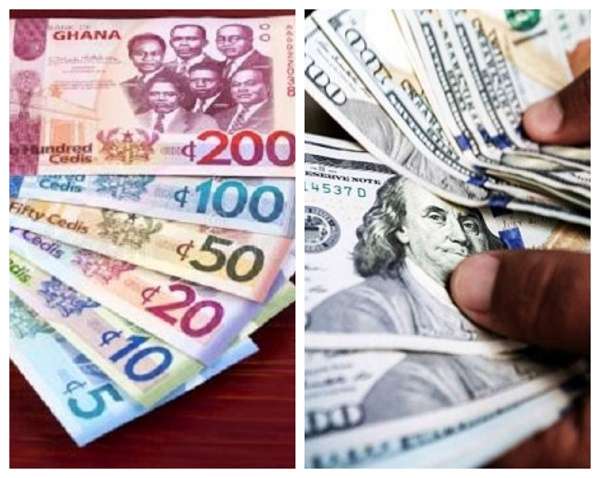According to the 2024 United Nations report on Unpacking Africa’s Debt, over 80% of Ghana’s external debt is denominated in US dollars, making the country highly susceptible to exchange rate volatility.
This dependency, according to the report, places an immense strain on government finances and threatens critical development sectors.
Exchange rate volatility refers to fluctuations in the value of a currency relative to another. In Ghana’s case, the Ghanaian cedi has experienced significant depreciation against the US dollar, amplifying the burden of dollar-denominated debt. For instance, a debt that cost GHS 5.5 billion in 2019 now requires GHS 15.8 billion in 2024, purely due to exchange rate shifts. This 31.27% increase in debt costs, driven by cedi depreciation, underscores the magnitude of the problem.
Such currency depreciation not only inflates the cost of repaying existing debt but also compounds fiscal pressures, leaving limited resources for essential sectors like health, education, and infrastructure development. The report highlights Ghana as the 14th most exchange rate-volatile country in Africa, underscoring the persistent challenge.
Ghana’s plight is not unique; it mirrors a broader trend across Africa. The UN report identifies countries such as Angola, Ethiopia, Nigeria, South Africa, and Zambia as similarly vulnerable due to their reliance on US dollar-denominated debt. Over half of Africa’s external debt is in dollars, exposing these economies to the whims of global currency fluctuations.
The reliance on foreign currency loans stems from limited domestic financial resources and the need to finance development projects. However, the consequences of this dependence are stark, particularly in times of global financial uncertainty. Currency devaluation in borrowing countries amplifies debt servicing costs, leading to increased fiscal stress and potential economic instability.
The Debt and Exchange Rate Spiral
As of September 2024, Ghana’s external debt stood at GHS 470 billion, with 80% denominated in US dollars—equivalent to GHS 376 billion. The exchange rate, which was 12.0356 GHS/USD at the beginning of the year, has surged to 15.8 GHS/USD. This depreciation has made dollar-denominated debt significantly more expensive.
A key factor driving this cycle is the increased demand for US dollars to meet debt repayment obligations. Ghana must purchase dollars in the foreign exchange market, which, when coupled with limited supply, further weakens the cedi. Additionally, concerns about debt sustainability have triggered capital outflows, exacerbating the currency’s depreciation.
The vicious cycle of a weakening currency leading to higher debt servicing costs, which in turn fuels more borrowing, highlights the critical nature of Ghana’s debt challenge. Breaking this cycle requires a multifaceted approach.
Proposed Solutions to Reduce Vulnerability
To address the economic strain caused by exchange rate volatility, Ghana must adopt a comprehensive strategy that effectively manages its debt and builds resilience against external shocks. One critical approach is diversifying the country’s debt portfolio. Reducing reliance on US dollar-denominated loans can mitigate the risks posed by currency fluctuations. By exploring debt instruments in alternative currencies and strengthening mechanisms for local currency borrowing, Ghana can reduce its vulnerability to exchange rate volatility.
Strengthening the local currency is another essential step. Sound macroeconomic policies that stabilize the cedi are vital for achieving this goal. Measures such as promoting exports, attracting foreign direct investment, and controlling inflation can enhance the cedi’s value and reduce the adverse impact of external debt obligations.
Improved debt management practices are equally important. Ensuring transparency and accountability in debt acquisition and usage can build investor confidence while minimizing speculative pressures on the currency. Debt restructuring, which includes extending repayment periods and securing favorable terms, is another viable solution that can ease the burden of external debt on the economy.
Building resilience to external shocks is crucial for sustainable economic growth. Ghana can achieve this by strengthening domestic revenue mobilization and reducing its dependency on external borrowing. Additionally, diversifying the economy to minimize reliance on commodity exports—often subject to price volatility—can create a more stable and robust economic foundation.
Finally, regional collaboration offers a pathway to greater economic security. Ghana can partner with other African countries to advocate for reforms in international lending practices and secure favorable global financial conditions. Initiatives such as African debt mutualization could provide collective bargaining power, enabling better outcomes for nations facing similar challenges.
The Way Forward
The growing debt burden tied to exchange rate volatility presents a formidable challenge to Ghana’s economic stability. However, with deliberate policy actions, the country can reduce its vulnerability and build a more sustainable fiscal framework.
As the UN report highlights, addressing the debt dilemma requires a balance between immediate relief measures and long-term structural reforms. Diversifying debt portfolios, strengthening local currency policies, and building resilience to global shocks are not just solutions but imperatives for Ghana to chart a path toward economic stability and growth.
Without decisive action, the rising costs of dollar-dominated debt will continue to undermine Ghana’s fiscal health, limiting its ability to invest in the future. The time to act is now, ensuring that the nation’s economy is better equipped to navigate the uncertainties of the global financial system.
READ ALSO: Analyst Links T-bill Demand Spike to Market’s Reaction to Political Change























